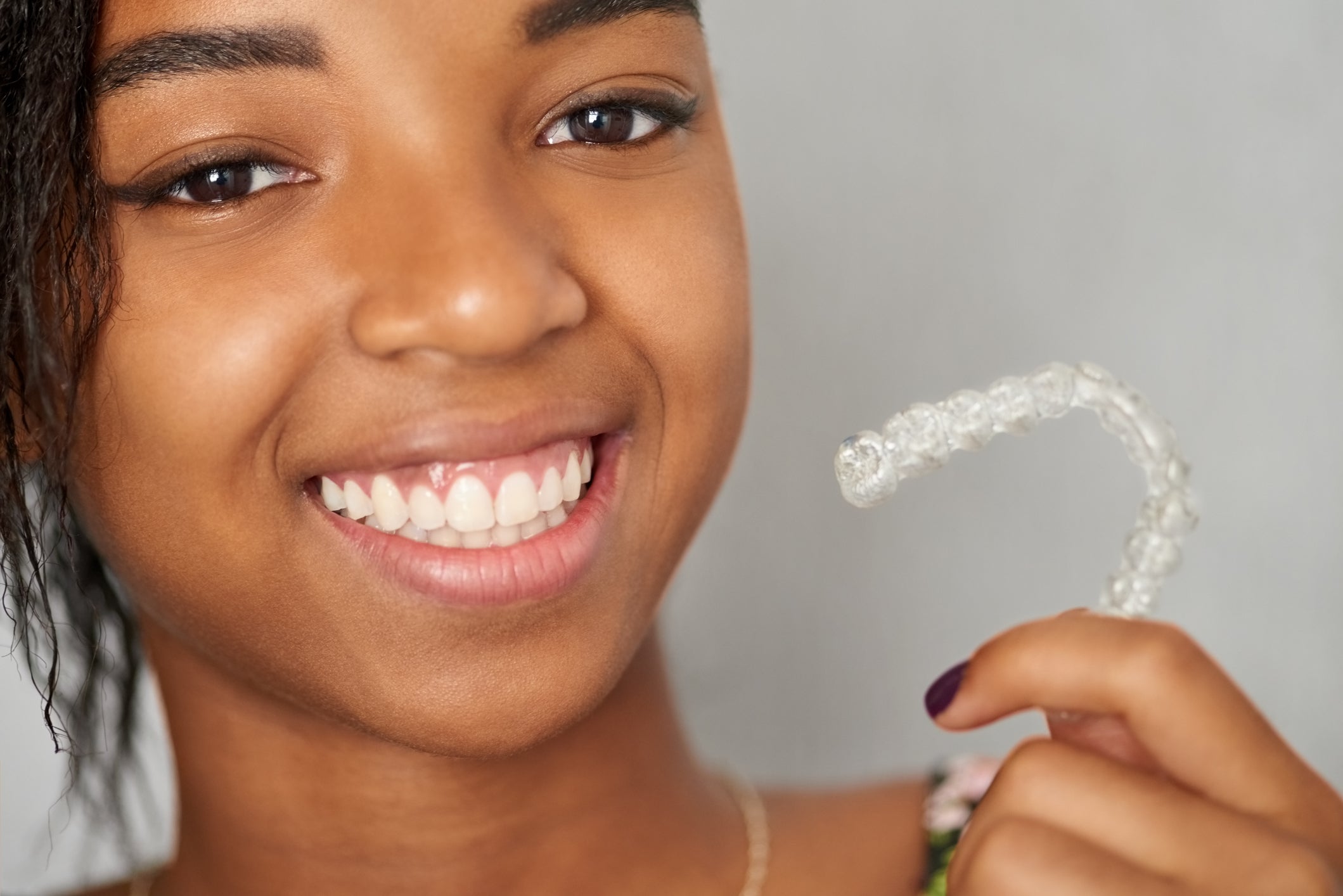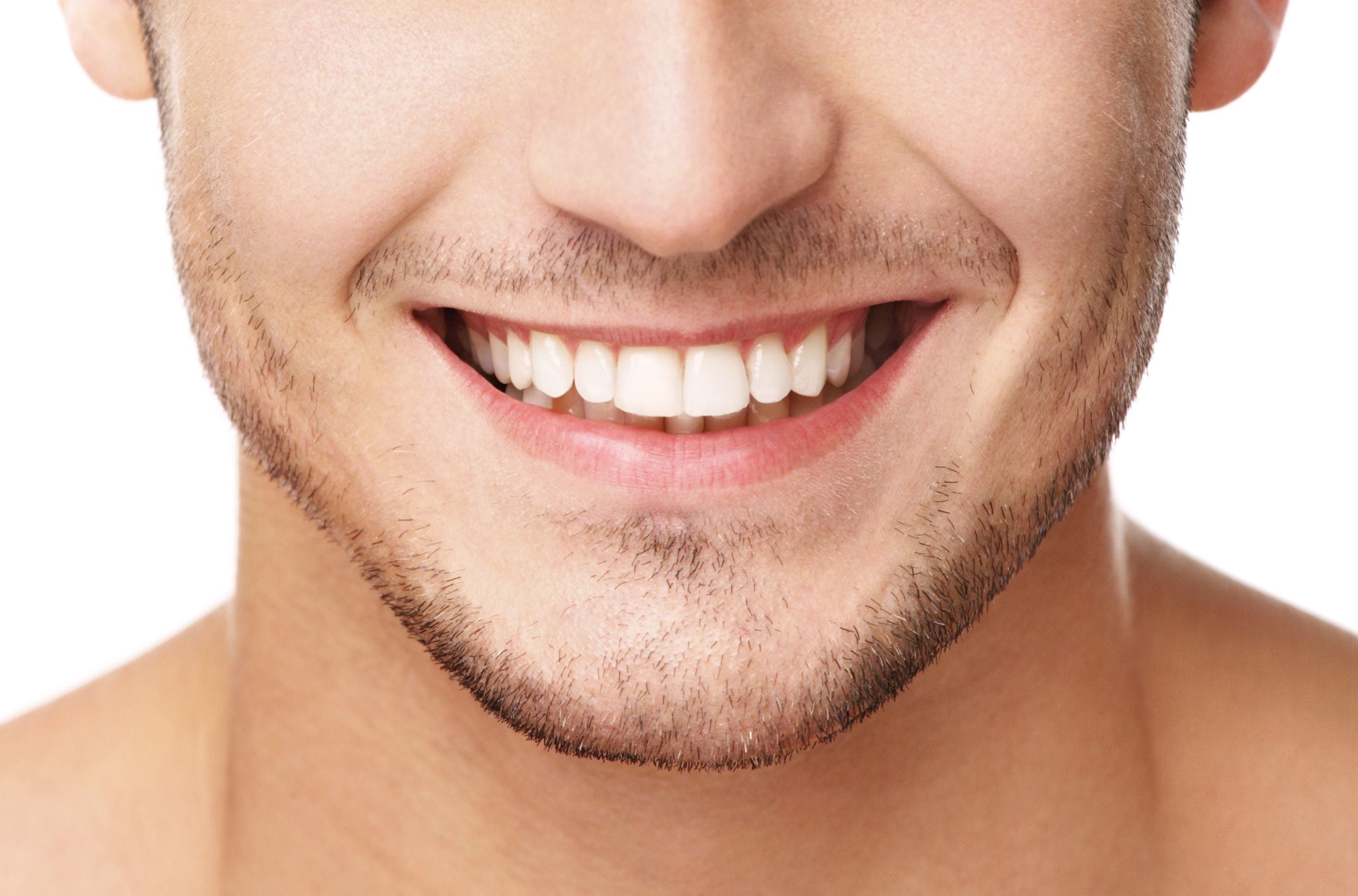-
Debunking Dental Myths

Do you know the facts about your teeth and dental health? You’d be surprised at how many things people believe that just aren’t true. Here, we debunk some common dental myths and give you the real scoop.
- Myth 1: You should brush your teeth immediately after eating. In fact, it’s better to wait at least 30 minutes after a meal. Saliva offsets the acids in the foods you eat; waiting to brush gives it a chance to do its job.
- Myth 2: Kids don’t need the dentist until their permanent teeth come in. You might think that it doesn’t matter if baby teeth have cavities, but it’s important to care for those first teeth. Children should see a dentist before their first birthday.
- Myth 3: If your gums bleed, that means you need to stop flossing. Gums bleed because of inflammation caused by bacteria and plaque stuck between the teeth. Get into the habit of flossing every day, and eventually the bleeding and inflammation will go away.
- Myth 4: Brushing your teeth hard will get them cleaner. Brushing too hard or using a toothbrush that’s too firm can erode your enamel and damage your teeth, as well as causing your gums to recede.
- Myth 5: If your teeth are sensitive, it’s because you brushed them too hard. While it’s important to be gentle with your teeth, there are many factors that can cause sensitivity, like gum recession and the use of whitening toothpastes.
- Myth 6: Swishing with mouthwash is just as good as brushing. Mouthwashes can freshen breath and sometimes contain fluoride, but they’re no substitute for brushing when it comes to removing sticky plaque.
- Myth 7: Sugar rots your teeth. It’s not the sugar itself, but rather leaving it on your teeth that causes decay. Brushing twice a day keeps cavities at bay.
- Myth 8: Everyone needs the same dental care, regardless of health or life stage. Certain health conditions, like diabetes, require a very specific oral healthcare plan.
- Myth 9: If you don’t feel like anything is wrong with your teeth, you don’t need to see the dentist. It’s important to see the dentist twice yearly, even if you think you’re fine. Dentists can catch issues like gum disease, cavities, and even oral cancer early, before they become major problems.
- Myth 10: The care you take of your teeth only affects your mouth. Your oral health has a major impact on your entire body, and poor oral healthcare has been linked to cardiovascular disease, diabetic complications, respiratory issues, dementia, and more.
At Park 56 Dental Group, we offer pediatric, prosthodontics, endodontics, oral surgery, Invisalign®, emergency, and sedation dentistry, all at the highest level of treatment. We serve the Midtown, Central Park, Upper East Side, Park Avenue, and all surrounding Manhattan and New York areas, with a patient-centered practice that has hours to fit your schedule. Schedule your complimentary consultation today by contacting us online or calling us at (212) 826-2322.
-
Invisalign for Teens

Does your teenager need braces? Sometimes, teeth need to be straightened during the middle and high school years, but that’s also when teens are often most sensitive about their appearance. How can you help your teenager feel confident while still providing the orthodontic care necessary for long-term oral health? Invisalign® may be the answer. A revolutionary way to straighten teeth, Invisalign uses customized aligners to shift teeth without the discomfort and unattractive look of metal braces.
- Invisalign® aligners are practically invisible. Made from a soft, clear plastic, Invisalign® aligners are so discreet that people are unlikely to even notice you’re wearing them! Invisalign® Teen, created especially for teenagers, are non-invasive so that teens can feel confident while wearing them.
- Because they’re removable, Invisalign® aligners don’t require a special diet. With traditional braces, you have to be careful about eating things like popcorn or hard food. Invisalign® aligners are removable, so you can take them out when you’re eating and eat whatever you want. What’s more, because you take them out to brush and floss, it’s easy to take care of your teeth.
- Invisalign® is more comfortable than traditional metal braces. Metal braces can feel tight or rub against the inside of your mouth, causing discomfort or even pain. Invisalign® Teen is made from moldable plastic and specifically customized for your teen’s mouth, so you can be sure of a comfortable fit.
- Teens can keep participating in the activities they love while wearing Invisalign®. Whether they’re playing sports or playing instruments, teenagers don’t have to worry about Invisalign® getting in the way. The aligners are easy to take out and put back in after the activity is finished.
- Invisalign® works for many different issues. Underbites, overbites, and crossbites can be fixed with Invisalign, as well as crowded or widely-spaced teeth. Invisalign® is great for most mild to moderate orthodontic problems; during a consultation, your dentist can evaluate your teen’s mouth to see if this treatment is a good fit. What’s more, Invisalign® often works more quickly than traditional braces, so the treatment doesn’t take as long.
- You and your teenager need to understand that Invisalign® is a commitment. Each aligner needs to be worn for two weeks, and the whole process takes anywhere from a few months to three years. The aligners don’t have to be worn all the time, but they do have to be worn about 20-22 hours each day. Additionally, Invisalign® requires frequent trips to the orthodontist for checkups and to make sure the treatment is progressing on schedule.
At Park 56 Dental Group, we offer Invisalign®, along with pediatric, prosthodontics, endodontics, oral surgery, emergency, and sedation dentistry, all at the highest level of treatment. We serve the Midtown, Central Park, Upper East Side, Park Avenue, and all surrounding Manhattan and New York areas, with a patient-centered practice that has hours to fit your schedule. Schedule your complimentary consultation today by contacting us online or calling us at (212) 826-2322.
-
Teeth Whitening Aftercare

Getting your teeth whitened is so rewarding! Once you’ve had a teeth-whitening procedure done, you’ll probably be flashing your beautiful new smile at everyone you see. If you want to keep it beautiful and white, though, you’ll need to take care of your smile. Here are some tips to keep your teeth bright and shining for as long as possible.
- Be mindful of colored food and beverages. Especially during the first 48 hours after your teeth-whitening procedure, avoid eating or drinking anything that’s deeply colored. Wine, tea, coffee, cherries, chocolate, beets, berries, soda, juice, and dark sauces should be avoided in favor of foods that are light in color. You’ll also want to avoid chewy foods for a while because they can leave a stain. If you do decide to drink a colored beverage, use a straw to avoid staining your teeth.
- Don’t eat acidic foods. Soda, pickles, and citrus, for instance, can be damaging after teeth whitening. Teeth-whitening treatments weaken the tubules of tooth enamel, opening them up. This makes your teeth more prone to stains and decay, and acidic foods worsen this weakness.
- Eat foods that will help your teeth stay white. White meat, bananas, cauliflower, potatoes, white beans, rice, white rice, and pita bread are all good foods post-whitening. Certain foods can even help clean your teeth, helping them to stay white. Crunchy fruits or vegetables, especially apples, celery, carrots, and green beans, can enhance saliva production, which cleans the teeth and counteracts acids. These crunchy vegetables can even remove temporary stains. Eating more dairy products and foods high in calcium will help keep your teeth healthy and defend against decay.
- Take care of sensitive teeth. After the whitening procedure, your teeth may be sensitive. Avoid foods that are too hot or too cold, and use dental hygiene products designed specifically for sensitive teeth.
- Don’t overdo it when you’re caring for your teeth. Brush after every meal, or when you’ve eaten a staining or acidic food. Do it gently, to avoid causing yourself pain or stripping the whitening. Floss at least once a day to prevent tooth decay and gum disease. Don’t immediately do any more whitening, even if you aren’t satisfied with the whiteness of your teeth, because that can harm your enamel.
- Don’t smoke! Smoking can stain your teeth, causing yellow and brown discoloration that’s extremely difficult to remove. What’s more smoking is terrible for your oral health, as well as your overall health. If you smoke, quit. If you don’t smoke, never start.
At Park 56 Dental Group, we offer teeth whitening, along with pediatric, prosthodontics, endodontics, oral surgery, Invisalign®, emergency, and sedation dentistry, all at the highest level of treatment. We serve the Midtown, Central Park, Upper East Side, Park Avenue, and all surrounding Manhattan and New York areas, with a patient-centered practice that has hours to fit your schedule. Schedule your complimentary consultation today by contacting us online or calling us at (212) 826-2322.
-
The Benefits of Straighter Teeth

If you’re thinking of having your teeth straightened, you’re probably thinking about the cosmetic benefits. About a million adults in the U.S. wear braces, most of them because they want the look of perfectly straight teeth. Would it surprise you to learn that the benefits of straighter teeth go far beyond the way you look? Read on to learn more.
- Straight teeth are easier to clean. When your teeth are crooked or crowded, it can be hard to thoroughly clean them, getting between every space and crevice. This can lead to cavities, periodontal disease, and other oral health issues.
- Because they help you keep your mouth healthier, straight teeth are better for the overall health of your body. Cleaning your teeth removes bacteria, preventing infections from spreading throughout your body. Unhealthy mouths have been linked with a variety of health conditions like diabetes, heart disease, respiratory problems, and dementia.
- Straight teeth help your digestion. This is obvious if you think about it, because chewing is the first step of the digestion process. When you’re better able to chew your food, the rest of your digestive system doesn’t have to work as hard.
- You’ll speak more clearly with straighter teeth.Teeth that are crowded, gapped or protruding teeth can negatively impact your speech patterns. Lisps and other speech impediments are more likely with crooked teeth. When your teeth are straight, your speech will be clearer, boosting your self-confidence.
- Straight teeth last longer. They’re less likely to break, crack, or decay and fall out. When your teeth are straight, there’s less wear and tear placed on your teeth, gums, and jaw when you bite and chew. Improper alignment can prematurely wear teeth down, causing chipping and notching at the gum line, fractures in the teeth, and abnormal flattening of the biting surface.
- Neck, head, and jaw pain can be reduced when teeth are straightened. Crooked teeth can contribute to jaw misalignment, straining the joints of the jaw and leading to temporomandibular joint (TMJ) disorders, which can cause ear problems, dizziness, and chronic neck, face, and head pain.
- You’ll sleep better if your teeth are straighter. Crooked teeth can contribute to problems like sleep apnea and tooth grinding.
- Straight teeth can make you feel more confident. When your teeth are crooked or misaligned, it can make you feel insecure or unattractive. Havin them straightened can improve your self-esteem, which improves your mental and physical health. You’ll be less likely to feel depressed or anxious, and more likely to feel confident and sure of yourself.
At Park 56 Dental Group, we offer pediatric, prosthodontics, endodontics, oral surgery, Invisalign®, emergency, and sedation dentistry, all at the highest level of treatment. We serve the Midtown, Central Park, Upper East Side, Park Avenue, and all surrounding Manhattan and New York areas, with a patient-centered practice that has hours to fit your schedule. Schedule your complimentary consultation today by contacting us online or calling us at (212) 826-2322.
RECENT POSTS
categories
- Uncategorized
- Cosmetic Dentistry
- Veneers
- Healthier Teeth
- Teeth Whitening
- Dental Health
- Video
- Dental Emergencies
- Invisalign
- Dental Implants
- Root Canal
- Sedation Dentistry
- Infographic
- Dental Crowns and Bridges
- Dental Anxiety
- Gum Disease
- COVID-19
- Bad Breath
- New York Dentist
- Cut out sugar
- General Dentistry
- Oral Health
- Oral Cancer
- Dry Mouth
- Gum Health
- Toothache
- Dental Sealants
- Cavities
